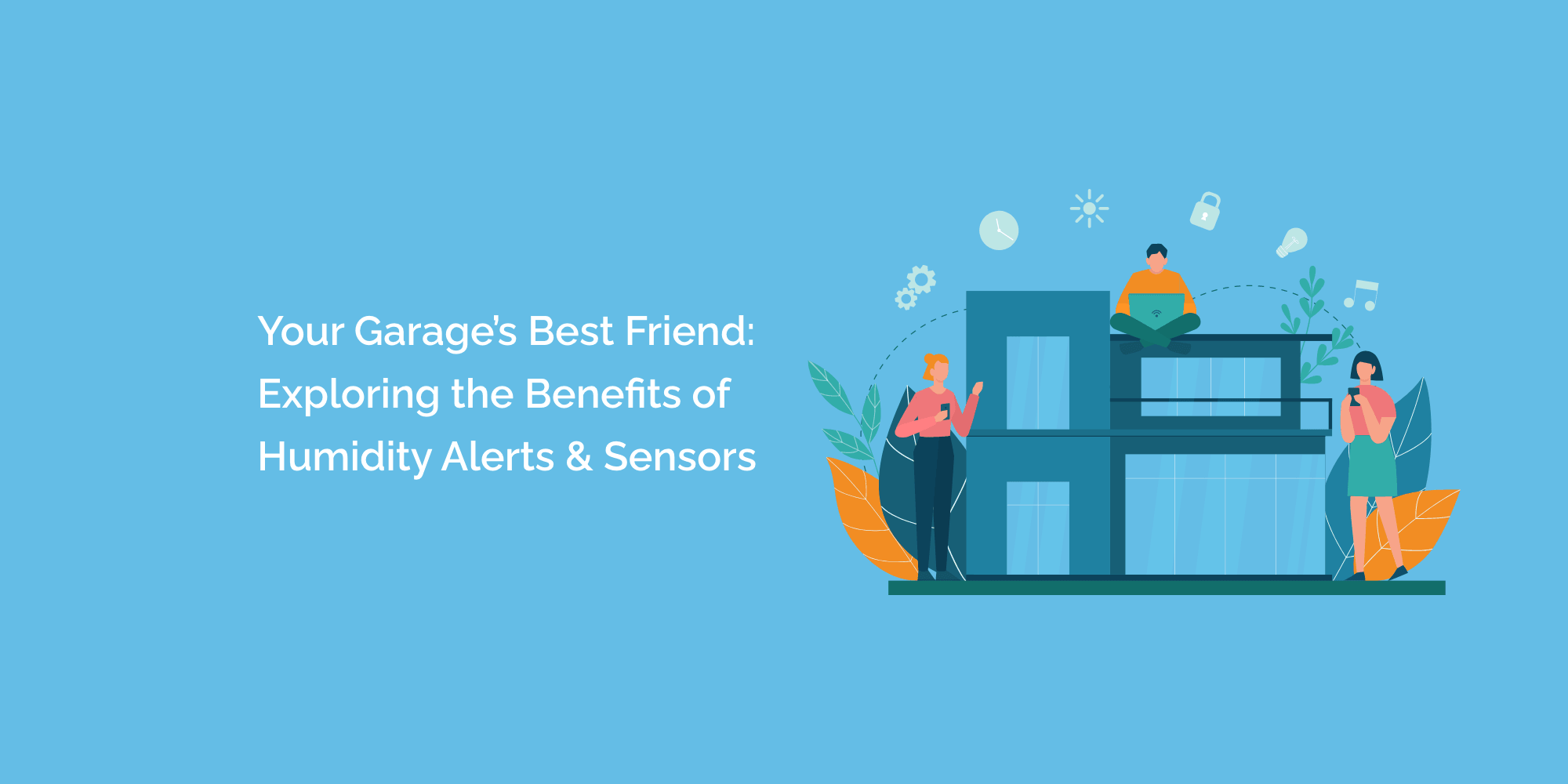Your garage is more than just a space to park your car; it's a versatile area that can serve as a workshop, storage, or even an extension of your living space. However, the often overlooked aspect of garage maintenance is humidity control.
Excess humidity can wreak havoc on your belongings and the structural integrity of the space. This is where humidity alerts and sensors step in as your garage's best friends.
In this comprehensive guide, we'll delve into the myriad benefits of humidity alerts and sensors, exploring how they can save your garage from mold, damage, and unnecessary headaches.
Understanding the Humidity Threat
Humidity, or the amount of moisture in the air, plays a significant role in the overall health of your garage. High humidity levels create an environment where mold, mildew, and rust thrive. These issues not only damage your belongings but also pose health risks to you and your family.
Moreover, wood can warp, metal can corrode, and electronics can malfunction due to excessive moisture. Controlling humidity is crucial to maintaining the integrity and functionality of your garage.
Humidity Sensors: Your Garage's Guardians
Humidity sensors are your garage's silent guardians, constantly monitoring the moisture levels in the air. These sensors detect changes in humidity and provide real-time data, allowing you to take immediate action when needed. Here's how humidity sensors can be your best friend:
1. Early Detection of Humidity Spikes: Humidity sensors act as early warning systems, alerting you when humidity levels rise above safe limits. This early detection gives you the opportunity to intervene before mold and damage can occur.
2. Customizable Alerts: Modern humidity sensors can be integrated with smart home systems, sending alerts to your phone, tablet, or computer. You can customize these alerts based on your preferences, ensuring that you're informed whenever significant changes in humidity occur.
3. Preventive Action: Armed with data from humidity sensors, you can take immediate preventive action. Whether it's turning on a dehumidifier, improving ventilation, or addressing leaks, the information provided by the sensors empowers you to make informed decisions.
4. Data Tracking: Humidity sensors often provide historical data that allows you to track humidity trends over time. This data is invaluable for identifying patterns and addressing recurring issues.
5. Integration with Smart Systems: Integrating humidity sensors with smart home systems opens up a world of possibilities. You can program your system to automatically activate dehumidifiers, fans, or air conditioning when humidity levels exceed a certain threshold.
Benefits of Proper Humidity Control
The benefits of humidity alerts and sensors extend far beyond mold prevention. Proper humidity control in your garage offers several advantages:
1. Mold Prevention: Mold thrives in damp environments. By maintaining optimal humidity levels, you create an inhospitable environment for mold growth.
2. Protection of Belongings: Humidity can damage items stored in your garage, such as tools, electronics, and furniture. With humidity sensors, you can preserve the condition of your belongings and extend their lifespan.
3. Structural Integrity: Excessive humidity can compromise the structural integrity of your garage, leading to wood rot, rust, and corrosion. By controlling humidity, you safeguard the longevity of your garage's components.
4. Energy Efficiency: Humidity affects temperature perception. By controlling humidity, you can maintain a more comfortable temperature without overtaxing your heating or cooling systems, leading to energy savings.
5. Health and Comfort: High humidity can create an uncomfortable and unhealthy environment. By keeping humidity in check, you ensure the comfort and well-being of anyone who uses or enters your garage.
Installation and Maintenance Tips
To maximize the benefits of humidity sensors, consider the following tips:
1. Strategic Placement: Install humidity sensors in areas prone to humidity issues, such as basements, attics, and crawlspaces. Avoid placing sensors near sources of moisture or vents, as this can affect accuracy.
2. Regular Calibration: Calibrate your sensors according to the manufacturer's guidelines to ensure accurate readings. Regular calibration guarantees reliable data.
3. Maintenance and Cleaning: Clean your sensors periodically to prevent dust or dirt buildup that could interfere with their performance. Regular maintenance prolongs their lifespan.
4. Interpretation of Data: Educate yourself on interpreting the data provided by the sensors. Understand optimal humidity levels for different areas of your garage and how to respond to alerts effectively.
Conclusion
In the battle against excess humidity and its consequences, humidity alerts and sensors emerge as your garage's best friends. Their real-time data, customizable alerts, and ability to facilitate preventive action make them indispensable tools for maintaining a safe, mold-free, and functional space.
By investing in humidity sensors, you invest in the longevity of your belongings, the structural integrity of your garage, and the health and comfort of your family.
Let these sensors be your guardians, guiding you toward optimal humidity levels and safeguarding your garage from the threats that moisture can bring. Your garage's best friend is here to ensure that you enjoy your space to the fullest, free from the perils of humidity.








